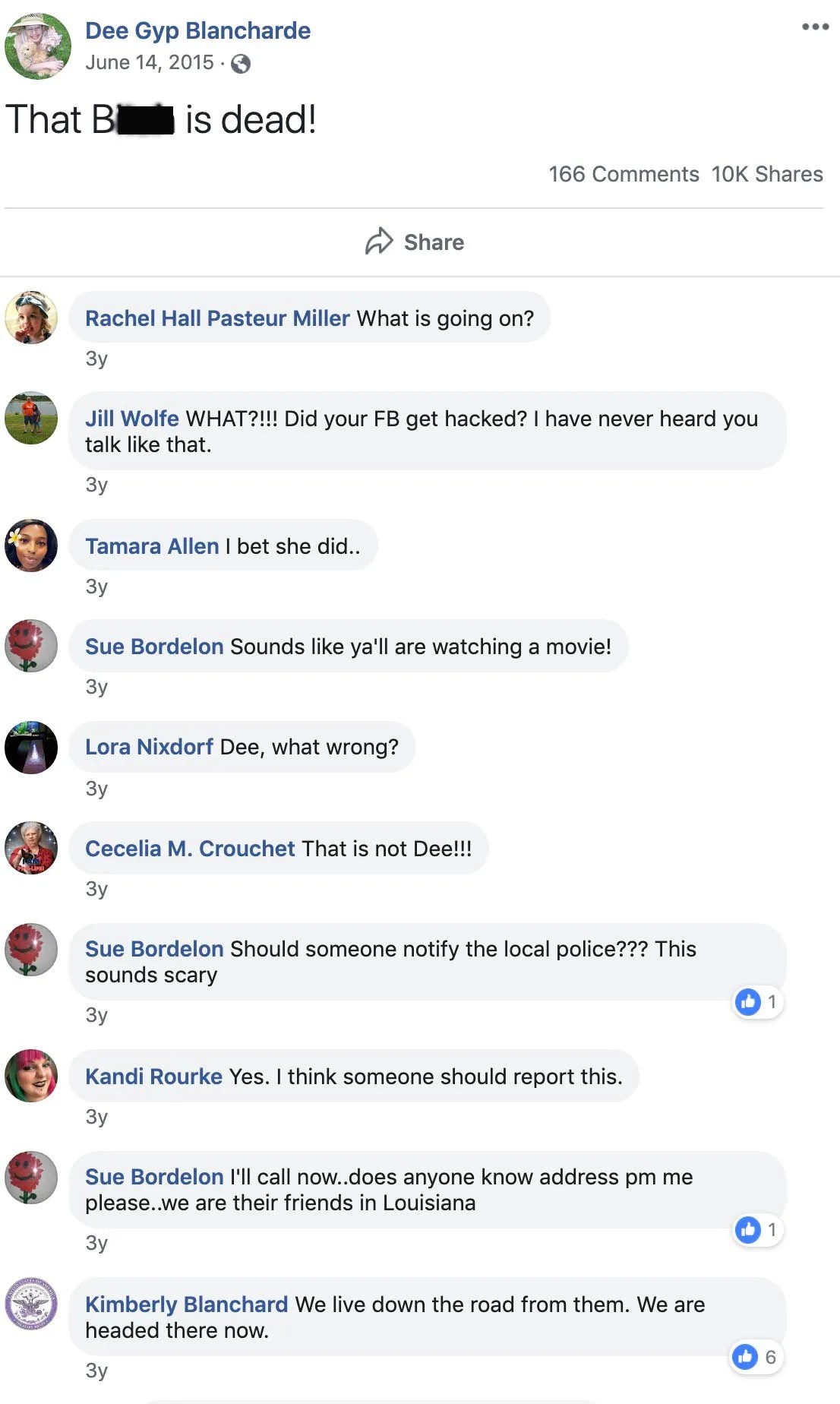Deedee crime photos have captivated the public imagination, drawing attention to the darker aspects of human behavior. These images often serve as a chilling reminder of real-life criminal cases, offering a glimpse into the events surrounding heinous acts. In this article, we will delve into the phenomenon of crime photography, focusing on the case of Deedee and the implications of such images on society.
The rise of true crime media has led to a surge in interest regarding crime-related imagery, with many enthusiasts seeking out infamous crime scene photos. Deedee's case is among those that have left a significant mark, prompting discussions about morality, ethics, and the impact of crime on victims and their families. As we explore the intricacies of this topic, we will also highlight the importance of responsible storytelling in true crime narratives.
This article aims to provide a comprehensive overview of Deedee crime photos, their background, and their role in shaping public perception. We will also discuss the significance of ethical considerations in sharing such images, emphasizing the need for sensitivity towards those affected by crime.
Table of Contents
- 1. Background of the Deedee Case
- 2. The Role of Crime Photography in True Crime
- 3. Analyzing Deedee Crime Photos
- 4. The Ethical Implications of Sharing Crime Images
- 5. The Psychology Behind True Crime Fascination
- 6. Public Reactions to Deedee Crime Photos
- 7. How Media Portrayal Affects Perception
- 8. Conclusion and Call to Action
1. Background of the Deedee Case
The Deedee case refers to a notorious incident involving serious criminal acts that garnered significant media attention. This section will cover the key details surrounding the case, including the timeline of events and the individuals involved.
1.1 Key Events Leading to the Case
- Initial reports and investigations
- Key witnesses and testimonies
- Legal proceedings and outcomes
1.2 Impact on the Community
The Deedee case had a profound impact on the local community, leading to increased awareness and discussions about safety and crime prevention.
2. The Role of Crime Photography in True Crime
Crime photography plays a pivotal role in the true crime genre, serving as visual documentation of real events. This section will explore the history and evolution of crime photography.
2.1 Historical Context
Crime photography has its roots in the late 19th century, where early photographs aimed to document criminal behavior and aid in investigations.
2.2 Modern Crime Photography
With the advent of digital technology, the accessibility of crime photos has increased, leading to a proliferation of images shared across various platforms.
3. Analyzing Deedee Crime Photos
Deedee crime photos provide a unique perspective on the events surrounding the case. This section will analyze specific images and their implications.
3.1 Description of Key Images
We will describe some of the most significant images from the Deedee case, highlighting the context in which they were taken.
3.2 Public Interpretation
Public interpretation of these images can vary widely, often influenced by media portrayal and personal experiences.
4. The Ethical Implications of Sharing Crime Images
Sharing crime imagery raises important ethical questions. This section will discuss the responsibilities of media outlets and individuals when it comes to disseminating such images.
4.1 The Balance Between Information and Sensitivity
Finding a balance between informing the public and respecting the victims and their families is crucial.
4.2 Legal Considerations
There are legal aspects to consider when sharing crime images, including privacy rights and the potential for re-traumatization.
5. The Psychology Behind True Crime Fascination
The fascination with true crime, including Deedee crime photos, can be attributed to various psychological factors. This section will explore why people are drawn to such narratives.
5.1 The Appeal of the Macabre
Many individuals are naturally curious about the darker sides of human nature, which can make true crime stories alluring.
5.2 Empathy and Understanding
Some people engage with true crime to gain a deeper understanding of the motivations behind criminal behavior.
6. Public Reactions to Deedee Crime Photos
The public's response to Deedee crime photos has been mixed, reflecting a range of emotions from horror to intrigue. This section will analyze various reactions.
6.1 Social Media Trends
Social media has amplified discussions about crime images, with many users sharing their thoughts and opinions.
6.2 The Role of Online Communities
Online communities have emerged, where enthusiasts discuss and dissect crime-related content, including Deedee's case.
7. How Media Portrayal Affects Perception
The way media portrays crime scenes and images can significantly influence public perception. This section will explore the impact of media representation.
7.1 Stereotypes and Misconceptions
Media portrayal can sometimes reinforce stereotypes or misconceptions about crime and those involved.
7.2 Responsible Reporting
Media outlets have a responsibility to report on crime sensitively and accurately, ensuring they do not sensationalize events.
8. Conclusion and Call to Action
In conclusion, Deedee crime photos serve as a powerful reminder of the complexities surrounding crime and its impact on society. As we navigate this intriguing world, it is essential to approach such topics with care and consideration.
We encourage readers to reflect on the ethical implications of sharing crime images and to engage in respectful discussions about true crime. If you found this article insightful, please leave a comment, share it with others, or explore more articles on our site.
Thank you for your interest, and we look forward to seeing you again soon!
Unraveling The Mystery: Gypsy Rose Crime Scene Images And Their Impact
Gypsy Rose Blanchard: The True Crime Scene Behind Her Story
Dee Dee's Photoshoot: Capturing The Essence Of Elegance And Charm


